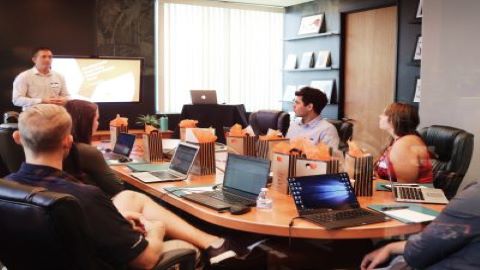Presentations in this series are based on the projects that GLO-VirtYS program scholars completed as part of the their program participation. See for the details VirtYs program and the cohort 2021.
Mark your calendar. Participation is open: Here is the link to the meeting
https://teams.microsoft.com/registration/VvqpUTI_mkSnIT4_Sapemg,ZavJ2alEL0urPskQsPymUQ,sstEMlKfc0KRE4zCzs9JeQ,JoCy35k4JUmsAo1nrf2lJQ,kzPP8R9Fpkelk3LBTFKOyg,CT3YNshfhECHD3GLjPmo2Q?mode=read&tenantId=51a9fa56-3f32-449a-a721-3e3f49aa5e9a
September 9th 2021 Program on 1 pm London/UK time.
Jun Hyung Kim, Jinan University and GLO Affiliate
Mental Health Consequences of Working from Home during the Pandemic
(GLO VirtYS program advisor Professor Jan van Ours)
Femke Cnossen, University of Groningen and GLO Affiliate
Learning the Right Skill: Revealed Local Labour Demand for Underlying Skills in STEM and Non-STEM Graduates
(GLO VirtYS program advisors Dr Matloob Piracha and Dr Guy Tchuente)
Chaired by GLO VirtYS Program Director Olena Nizalova.
Featured Image: Employee-Training-unsplash

Jun Hyung Kim is an assistant professor of economics at the Institute of Economic and Social Research at Jinan University. His research is focused on parenting and child development, with particular attention on how life cycle decisions of parents interact with parenting decisions. He received B.A. in economics at UC Berkeley and PhD in economic at the University of Chicago.
GLO VirtYS project: Mental Health Consequences of Working from Home during the Pandemic
This paper examines the effects of working from home on mental health, using unique real time survey data from South Korea collected during the COVID-19 pandemic. We find that working from home negatively affects the mental health of workers in the first half of 2020. Furthermore, we find substantial heterogeneity across gender and home environment. The negative impact of working from home is concentrated on women, and on those who are primarily responsible for housework while also maintaining market work. Surprisingly, workers who live with children in the household do not suffer from the negative effects of working from home. Our findings suggest that family-work interaction may be an important factor in the optimal design of working from home.

Femke Cnossen is a PhD student at the University of Groningen. Her PhD focuses on the micro-dynamics of technological change and labour markets, by linking survey data to registerdata. She studies skill demand, (routine) task prices, and on the impact of technological progress on meaningfulness of work. From september, she is a postdoctoral researcher in regional skill analysis at the Faculty of Spatial Sciences at the University of Groningen.
GLO VirtYS project: Learning the Right Skill: Revealed Local Labour Demand for Underlying Skills in STEM and Non-STEM Graduates
Technological change and globalization have sparked debates on the changing demand for skills in western labour markets, especially for middle skilled workers who have seen their tasks replaced. This paper provides a new data set, which is based on text data from curricula of the entire Dutch vocational education system. We extract verbs and nouns to measure social, technical and basic skills in a novel way. This method allows us to uncover the skills middle-skilled students learn in school. Using this data, we show that skill returns vary across students specialized in STEM, services or health. Furthermore, we show that social and technical skills differentially relate to the probability of being employed in either the low or high skill sector or in the goods sector. Our findings can guide future research on the complementarity between skills and production technologies.
Ends;

